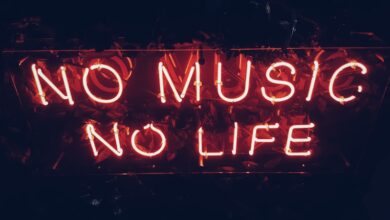Understanding the Role of Music in Social Movements and Activism

Introduction:
Have you ever wondered about the powerful influence music can have on social movements and activism? Music has a unique ability to unite people, inspire change, and amplify voices that would otherwise go unnoticed. In this article, we’ll delve into the profound impact music has had throughout history and explore how it continues to shape social movements today.
The Historical Significance:
Throughout history, music has played an integral role in driving social change. From the civil rights movement of the 1960s to the anti-war protests of the Vietnam era, iconic songs like “Blowin’ in the Wind” by Bob Dylan and “We Shall Overcome” by Pete Seeger became anthems for those fighting for equality and justice. These songs captured the hearts and minds of individuals, fostering a sense of unity and determination.
Music as a Catalyst:
Music serves as a catalyst for social change by providing a platform for marginalized voices. It gives a voice to the silenced, expresses shared frustrations, and conveys messages that resonate deeply with listeners. Artists often use lyrics as a medium to highlight social injustices, evoke empathy, and spark conversations that lead to action. By weaving together melodies, rhythms, and poetic lyrics, musicians create a powerful tapestry that speaks directly to the soul.
Amplifying Messages:
One of the remarkable aspects of music is its ability to transcend language barriers. A melodic refrain or a catchy rhythm can connect with people from diverse backgrounds, cultures, and languages, allowing messages to spread rapidly across borders. Songs like “Imagine” by John Lennon and “Born This Way” by Lady Gaga have become international anthems, championing messages of peace, acceptance, and equality.
Inspiring Unity and Resilience:
During times of social upheaval, music acts as a unifying force, bringing communities together and giving them strength. Whether it’s a protest march or a peaceful gathering, music infuses these moments with energy and passion. It empowers individuals, fostering a sense of camaraderie and reminding people that they are not alone in their fight for change.
Conclusion:
In summary, music has proven time and again to be an essential component of social movements and activism. Its ability to inspire, uplift, and mobilize people is unmatched. Through lyrics, melodies, and harmonies, music becomes a universal language capable of breaking down barriers and driving societal transformation. So the next time you find yourself engaged in a cause, take a moment to appreciate the power of music and let it fuel your passion for creating a better world.
Harmony in Protest: How Music Catalyzes Social Change and Empowers Activists

Introduction:
Can you imagine a world without music? It’s an indelible part of our lives, inspiring emotions, and stirring movements. Music has a unique power to transcend boundaries and bring people together, and nowhere is this more evident than in the realm of social activism. In this article, we will explore how music serves as a catalyst for social change, empowering activists to amplify their voices and create a harmonious impact on society.
The Unifying Language of Music:
Music is a universal language that knows no barriers. Regardless of nationality, culture, or background, its melodies and rhythms can resonate with individuals on a deep emotional level. This inherent ability to connect people makes it a potent tool for activists striving to unite diverse communities under a common cause. Through music, activists can bridge divides, build solidarity, and foster a sense of belonging among those fighting for social justice.

The Power of Lyrics:
Lyrics have the power to convey messages that are often difficult to express through mere words. When combined with music, they become even more potent vehicles for change. Powerful lyrics can articulate the grievances, hopes, and aspirations of marginalized communities, serving as anthems that galvanize individuals to take action. From Bob Dylan’s iconic “Blowin’ in the Wind” to Kendrick Lamar’s thought-provoking “Alright,” music has consistently provided a platform for artists to challenge the status quo and inspire revolutionary ideas.
Music as Emotional Fuel:
Few things can evoke emotions as intensely as music. It has the remarkable ability to uplift spirits, ignite passion, and fuel determination. In times of struggle and adversity, music acts as a source of solace and empowerment for activists. Whether it’s the resounding beat of a drum or the electrifying chords of a guitar, music harnesses emotional energy and channels it into transformative action. It rejuvenates activists’ resolve and reminds them of the collective strength they possess.
The Role of Music Festivals:
Music festivals have become hotbeds for social activism, where art and advocacy intertwine seamlessly. These vibrant events provide platforms for musicians and activists to come together, share their stories, and amplify their messages to a larger audience. Festivals like Woodstock, Live Aid, and more recent movements like Black Lives Matter and climate change protests have harnessed the power of music to mobilize people, raise awareness, and drive tangible change.

Conclusion:
In the realm of social activism, music is an invaluable force that unites communities, amplifies voices, and empowers individuals to strive for a better world. From its ability to transcend language barriers to its capacity to evoke powerful emotions, music has proven time and again to be an effective catalyst for social change. So let us embrace the harmonious power of music and join hands with activists worldwide in their quest for a more just and equitable society. Together, we can create a symphony of change.
From Anthems to Revolutions: Unveiling the Powerful Influence of Music in Social Movements
Have you ever wondered how music has the ability to ignite passion, unite communities, and spark social change? Throughout history, music has played a pivotal role in shaping and driving social movements. From heartfelt anthems to rousing protest songs, its influence has been both awe-inspiring and transformative. In this article, we delve into the captivating details of how music has become an instrument of empowerment and revolution for countless individuals and communities around the world.

Music possesses a unique quality that transcends language barriers and resonates with people on a deeply emotional level. It has the power to stir emotions, evoke memories, and convey powerful messages. Whether it’s the rallying chants at civil rights marches or the rebellious rock ballads during anti-war protests, music has served as a unifying force, amplifying the voices of the marginalized and challenging the status quo.
One remarkable example of music’s impact can be found in the Civil Rights Movement of the 1950s and 1960s in the United States. Iconic songs like “We Shall Overcome” became anthems of hope and resilience, inspiring countless activists in their struggle against racial injustice. These melodies carried messages of perseverance and equality, empowering individuals to stand up for their rights and fight for a better future.
Similarly, music played a pivotal role in the anti-apartheid movement in South Africa. Artists like Miriam Makeba and Hugh Masekela used their music to raise awareness about the oppressive regime and advocate for change. Their powerful lyrics and soul-stirring melodies captured the spirit of resistance, becoming a source of inspiration for those fighting against apartheid.
In recent times, with the advent of social media and digital platforms, music has gained even greater influence in social movements. Hashtags and viral challenges often accompany songs that champion causes such as gender equality, climate change, and LGBTQ+ rights. These modern-day anthems fuel conversations, mobilize communities, and provide an outlet for individuals to express their solidarity and drive social change.
Music’s extraordinary ability to connect people, evoke emotions, and inspire action renders it a fundamental element in the fabric of social movements. Through its universal language, music has the power to transcend boundaries, amplify voices, and challenge prevailing narratives. As we continue to witness new revolutions unfolding, one thing remains certain: music will forever be a dynamic force that propels social progress and shapes the world we live in.
Rhythm of Resistance: Exploring the Soundtracks that Fuel Activism Across Generations
In the realm of social change, music has always played a profound role in igniting and sustaining movements. From the civil rights era to present-day activism, the power of soundtracks resonates across generations, serving as a unifying force that amplifies the voices of the oppressed. Let’s delve into the captivating world of musical defiance and explore how these anthems of resistance continue to inspire change.
Imagine a time when the air was filled with passionate chants and harmonious melodies that echoed through the streets. These were the rhythmical calls for justice, equality, and freedom. Throughout history, musicians have leveraged their artistry to express societal frustrations and challenge the status quo. The very fabric of protest songs embraces the essence of shared experiences, offering solace and courage to those who fight for a better world.
From the soulful crooning of Billie Holiday’s “Strange Fruit” to Bob Dylan’s revolutionary anthem “Blowin’ in the Wind,” these compositions encapsulated the struggles and aspirations of entire generations. They became rallying cries, stirring emotions and sparking conversations that pushed society forward. The lyrics, like weapons, pierced through apathy, awakening a collective consciousness and fostering empathy among listeners.
But the power of musical activism did not fade with the passing eras. It evolved, adapting to new genres and embracing diverse voices. Hip-hop emerged as the modern-day megaphone for marginalized communities, articulating stories of systemic injustice and giving voice to the voiceless. Artists like Public Enemy, N.W.A., and Kendrick Lamar used their rhymes and beats to shed light on police brutality, racial inequality, and socio-economic disparities.
Today, digital platforms and social media have democratized the spread of activist anthems. Movements like #MeToo and Black Lives Matter have found resonance through viral songs and empowering ballads. The music becomes a soundtrack for change, reinforcing the urgency and importance of the cause. It brings people together, transcending borders and uniting them under the banner of justice.
The rhythm of resistance persists through the ages, weaving its way into our hearts and minds. From historic ballads that shaped social movements to contemporary tracks driving change, music has always provided a space for unheard voices and fueled the fire of activism. So, the next time you hear a powerful melody demanding justice, remember the profound impact it can have, for the beat of a song has the power to change the world.
Melodies of Revolution: The Transformative Power of Music in Driving Societal Shifts
Article:
Have you ever wondered how music has the ability to ignite a revolution? It’s fascinating how a simple combination of notes, rhythms, and lyrics can become a catalyst for change, stirring emotions and inspiring collective action. In this article, we’ll delve into the captivating world of music and explore its transformative power in driving societal shifts.
Music possesses a unique ability to transcend cultural, geographical, and linguistic boundaries. It speaks a universal language, connecting individuals on a deep emotional level. Just think about iconic songs like Bob Dylan’s “Blowin’ in the Wind” or John Lennon’s “Imagine.” These melodies became anthems of social and political movements, resonating with people from all walks of life and driving them towards a common cause.

When music becomes intertwined with a social or political message, its impact amplifies significantly. Artists have historically used their craft as a tool for expressing discontent, challenging the status quo, and demanding change. Through powerful lyrics and melodies, they channel frustrations, hopes, and aspirations, giving voice to the silenced and marginalized.
In times of turmoil, music becomes a unifying force, gathering people around a shared purpose. It evokes a sense of unity and fosters a collective identity among those fighting for a cause. From the civil rights movement in the United States, where songs like “We Shall Overcome” echoed through protests, to the anti-apartheid struggle in South Africa, with Miriam Makeba’s poignant “Pata Pata,” music has played an indispensable role in mobilizing communities, igniting passion, and encouraging resilience.
Moreover, music has the power to challenge existing norms and inspire critical thinking. It has the ability to confront oppressive systems, question authority, and promote social justice. By providing a platform for marginalized voices, music sheds light on social issues, amplifies unheard narratives, and encourages listeners to reflect on the world around them. It pushes boundaries, disrupts the status quo, and acts as a medium for cultural transformation.




